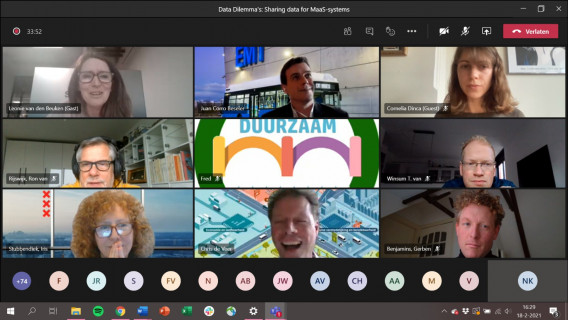Mobility as a Service (MaaS) enables carefree, integrated travel according to your own preferences. Governments have a lot of ambitions in this field. However, there’s not yet a fully operable MaaS system in the Amsterdam Metropolitan Area. This is mainly due to two reasons: there are a lot of different mobility parties in our region that collect data in various ways and are hesitant to share them. Besides the big amount of private parties, there are also a lot of (local) governments that have a say in the development of MaaS systems.
In some European cities, the situation is different and MaaS systems are running.
During this session, Amsterdam Smart City, together with the Province of North Holland and Datalab Amsterdam, were looking for best practices from Madrid, Helsinki and an international audience.
Madrid and Helsinki, two example cities in this field, had a very different approach. What are their success factors? Juan Corro from EMT Madrid told us about his lessons learned: take a lot of time and convince private parties to get on board and share the data. In Helsinki, companies were forced to share data. This worked, but started with resistance. Looking back, Sami Sahala from Helsinki shares his learnings with the audience.
Chris de Veer, smart mobility advisor at the Province of Noord-Holland: "I had a great, inspiring afternoon. The examples from Madrid and Helsinki gave me new insights. I connected to these experts immediately and I will continue to do so by collecting more international learnings for our regional challenges.''
Speakers:
- Chris de Veer, smart mobility advisor Province of North Holland
- Juan Corro, CIO EMT Madrid (public urban transport Madrid)
- Sami Sahala, ITS Chief Advisor, City of Helsinki & Forum Virium
Moderator:
- Leonie van den Beuken, program director Amsterdam Smart City





